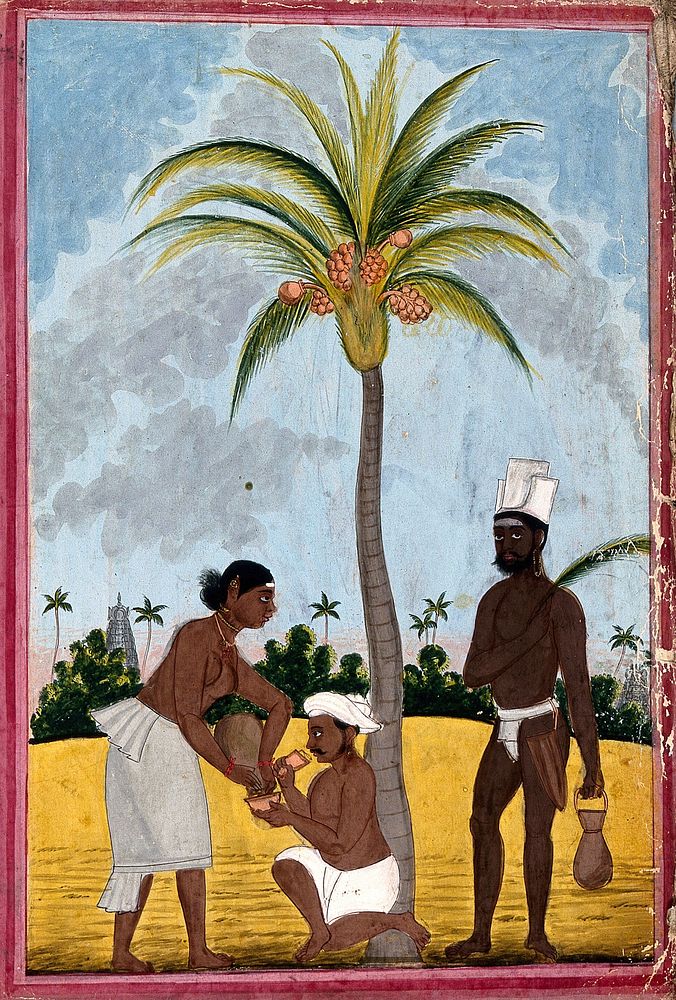The Forgotten Drink: Controversial Toddy Ban in Tamil Nadu, Clash Between Tradition and Regulation

- Country:
- India
The palmyra palm is a part of the identity of Tamil Nadu in southern India. Once palmyra climbers could make a good living, but the trees are now endangered and climbers and environmentalists are looking for solutions. Before 40 years, there were 30 crores of Palm trees in Tamil Nadu. Now there are only 5 crore Palm trees in Tamil Nadu. Though there are several reasons cited, the main reason for this is the ban on Palm wine (Toddy) in Tamil Nadu.
You might find feni or mahua, but certainly not toddy. This traditional drink is deeply rooted in Tamil Nadu’s cultural and social fabric. Despite its historical significance and relatively low alcohol content, toddy is banned in Tamil Nadu. This governmental stance has led to frequent protests, underscoring the complex relationship between tradition, regulation, and modernity.
The Cultural and Historical Significance of Toddy
Toddy, known locally as "Kallu," is a fermented beverage made from the sap of the Palmyra palm (Borassus flabellifer). For centuries, it has been a staple in the daily lives of many rural communities in Tamil Nadu. The process of tapping the sap and fermenting it into toddy is an age-old tradition, passed down through generations. The drink is not just a source of livelihood but also a cultural artifact, featuring in various social rituals and community gatherings.
The Government Ban and Its Implications
Despite its cultural significance and relatively low alcoholic content compared to other spirits, the sale of toddy is banned in Tamil Nadu. This ban has been in place for several decades, driven by concerns over public health, potential misuse, and the government's control over the alcohol market. Toddy's alcoholic content is far less than that of many other spirits manufactured using molasses, which are sold legally in Tamil Nadu State Marketing Corporation Limited (TASMAC) shops.
Tamil Nadu Toddy Federation is demanding the ban lifted on toddy. TNTF (Tamil Nadu Toddy Federation) said toddy has been banned in Tamil Nadu since 01 January 1987(for 37 years) and as a result, the livelihood of the toddy brewers has been severely affected and many movements and organizations are constantly fighting for this. They said that in the neighboring states of Kerala, Andhra Pradesh, Karnataka, and Pondicherry, the industry is doing well without any hindrance till date and toddy is considered to be a healthy drink.
Claimed Health Benefits:
Fresh toddy may contain beneficial bacteria due to natural fermentation, potentially aiding digestion and gut health. Toddy might have antioxidants that help fight free radicals in the body, potentially reducing the risk of chronic diseases and promoting skin health. Most health benefits are attributed to fresh toddy before it ferments into an alcoholic beverage. Consuming fermented toddy in excess can have negative health consequences associated with alcohol.
Potential Steps That Could Address The Issue
Policy Revision: The government could consider revising the ban, allowing regulated sale of toddy. This could involve setting up licensed toddy tapping and selling operations to ensure quality control and prevent misuse.
Public Awareness: Educating the public about the benefits of toddy compared to stronger spirits might help change perceptions. Highlighting its cultural importance and lower health risks can foster a more informed debate.
Economic Support: Providing economic support and incentives to traditional toddy tappers can help revitalize this cultural practice. This could include subsidies, training programs, and assistance in setting up cooperatives.
Cultural Recognition: Recognizing toddy tapping as an intangible cultural heritage can boost its status and encourage preservation efforts. This recognition can also attract tourism, adding another layer of economic benefit.
Conclusion
The ban on toddy in Tamil Nadu is a complex issue that intertwines cultural heritage, economic livelihoods, and public health concerns. While the government’s intention to regulate alcohol consumption is understandable, the blanket ban on toddy appears disproportionate, especially when stronger spirits are legally available. Addressing this issue requires a nuanced approach that respects tradition, supports local economies, and ensures public safety. By finding a balanced solution, Tamil Nadu can preserve its cultural heritage while promoting responsible consumption.










